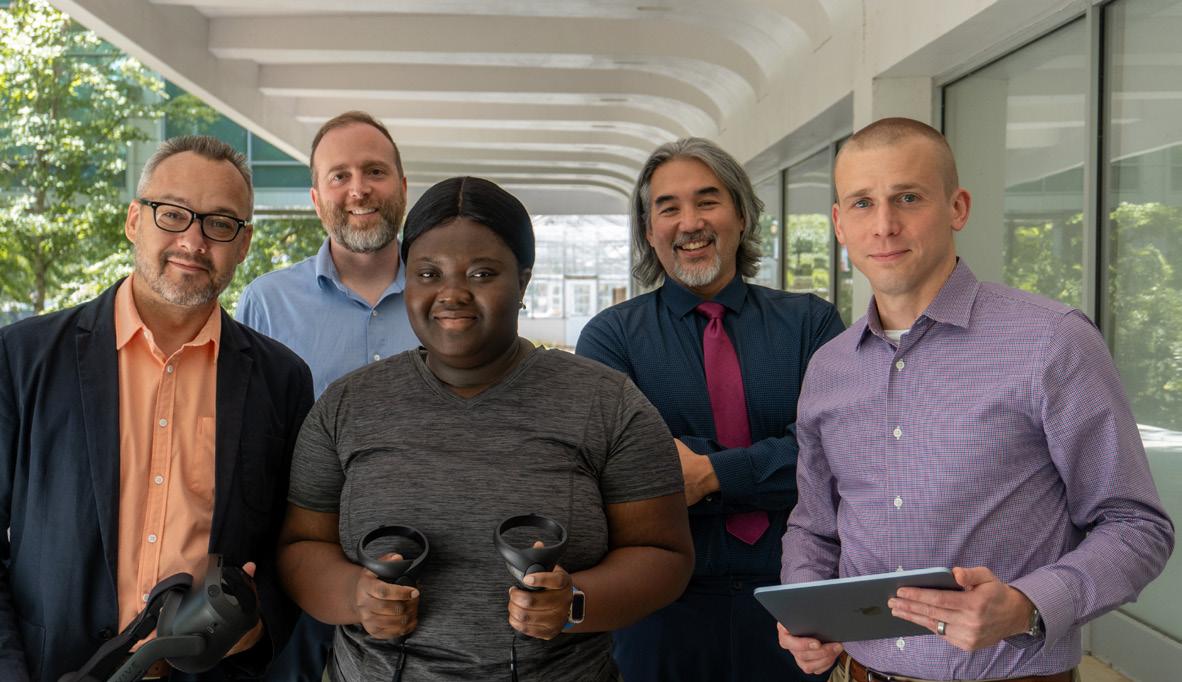
7 minute read
From Pixels to Prescriptions: COP’s Vision for Immersive Tech in the Classroom
Artificial intelligence (AI) can diagnose some diseases with better accuracy than specialized practitioners, flag significant drug-drug interactions for pharmacists, and—as of just a few months ago—pass the United States Medical Licensing Exam. But, where others might get frightened by rapid growth in the field of AI, Dr. Michael Fulford, CoP’s Assistant Dean for Institutional Effectiveness and Strategic Initiatives, gets excited. “When you pair AI with immersive technology, it represents an evolution in the tools we use to educate and an opportunity to ground what we teach in an enormous amount of applied practice opportunities that would otherwise not be possible,” explained Fulford.
Immersive tech—which encompasses virtual reality, augmented reality, and mixed reality technologies, such as Apple’s recently announced Vision Pro and Meta’s Quest technology—is just one way UGA’s College of Pharmacy is rising to the bold aspirations of its 2025 Strategic Plan, which calls for transformational educational scholarship alongside new, innovative programs that better prepare students to be leaders of the future. “Imagine an immersive classroom lab experience in which you’re working in a simulated ICU alongside a full healthcare team to run a code blue. That’s the sort of rare, high-risk practice experience that we can emulate regularly with immersive tech and AI,” Fulford said.
Similarly, instead of flipping through flashcards nightly to study, students can put on a VR headset and counsel simulated patients to actively practice and assess their drug knowledge whenever they wish. “Right now, it’s just not easy to schedule multiple five-minute practice counseling sessions for over 500 students. With immersive tech, though, that limit disappears, and students can simulate an infinite amount of practice on their own while still getting instantaneous feedback,” added Fulford.
Additionally, the technology can be used by undergraduate and graduate students alike to practice and refine complex laboratory techniques with a wider range of simulated equipment and instrumentation that might not otherwise be available in every on-campus teaching lab. For Dr. Russ Palmer, inaugural Director of the newly formed Office of Instructional Innovation and Research, the ability to seamlessly transport students and researchers to unique laboratory environments is just one of many “...new teaching strategies and methods that will improve academic outcomes and address real problems to promote equitable learning.”
While the technology still needs further development before it makes its way into the classroom on a routine basis, Fulford and his colleagues are already inviting immersive medical tech demonstrations to the college. This past year, for example, P2s used immersive tech to simulate some of the challenges of living with dementia, helping them better understand the unique needs of patients with neurocognitive decline. The College, in addition to establishing strategic partnerships with technology enterprises and participating in UGA’s larger Precision One Health data science and AI efforts, also is engaged in a cluster hiring initiative with the College of Veterinary Medicine and College of Education to bring on four translational education research experts to lead immersive tech scholarship, content development, and curriculum design.
Dr. Matthew Schmidt is the first of these hires, with primary appointment in the Mary Frances College of Education and secondary appointment in the College of Pharmacy. A leading expert in the field and co-editor of the textbook Educational Technology Beyond Content, Dr. Schmidt previously helped lead a $3 million grant at the University of Florida to explore the effectiveness of a self-managed mobile health intervention for adolescents with type 1 diabetes. With extensive research in eHealth solutions and experience bringing human-centered and equitable immersive tech to patients and students alike, he’ll help accelerate the college’s integration of novel technology into the classroom.
“Our vision for immersive tech in pharmacy education is certainly bold, but it’s one that places us at the forefront of innovative teaching and one that the College is making real progress on,” Fulford added, hinting at a project Dr. Eugene Douglass, Assistant Professor in Pharmaceutical and Biomedical Sciences, is leading to enhance students’ visualization of pharmacokinetics by placing them inside the human body. “To utilize complex pharmacokinetic equations, you first must develop an intuition for the physiological systems at play—you need to know what the equations actually represent. 2D representations of physiology can be misleading, but an immersive tech system provides a much more accurate picture of the human body at work,” explained Douglass. “Plus, humans are better able to retain spatial information than complex text-based equations. The tech is great for not just comprehension but also long-term memory consolidation.”
Within the coming semesters, Dr. Douglass hopes that students will be able to see firsthand how drugs are absorbed, distributed, metabolized, and eliminated in the body. His simulations, which are rooted in real, curated clinical datasets of patient-specific pharmacokinetic parameters, will offer students a unique opportunity to build an unparalleled intuition of how drugs exert their effects over time. And when dosing- and calculation-based pharmacokinetic medication errors still occur frequently and put patient well-being at risk, helping students develop a more natural intuition of pharmacokinetics with immersive tech may not just be valuable for long-term knowledge retention—it might just be a life-saving innovation.
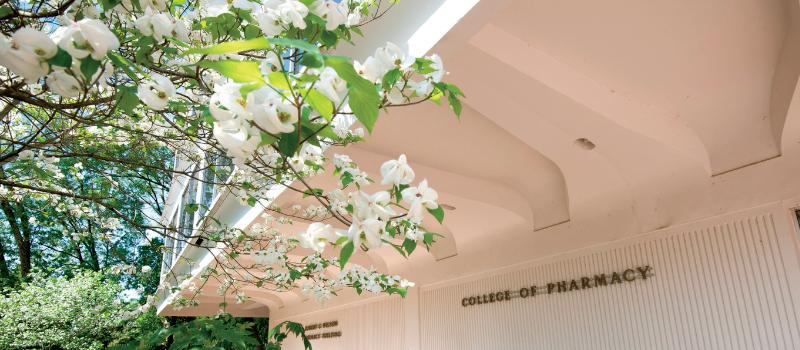
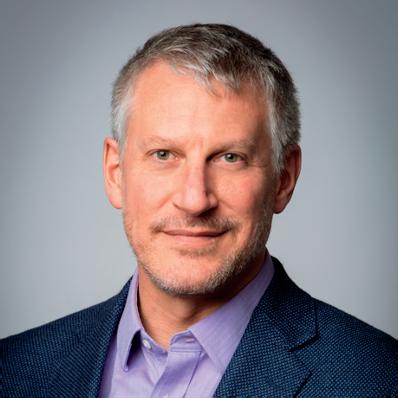

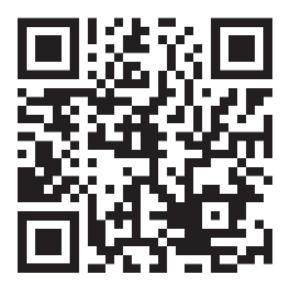
1147 47 Matriculants
3.52 Average Overall Undergraduate GPA
TOP 3
PRE-PHARMACY MAJORS
TOP 4
INSTITUTIONS
3.46


21% Pharmaceutical Sciences
19% Biology
13% Chemistry
47% UGA
6% Georgia Southern
5% Georgia State
4% North Georgia
99 Average Earned Credit Hours (Undergrad Coursework)
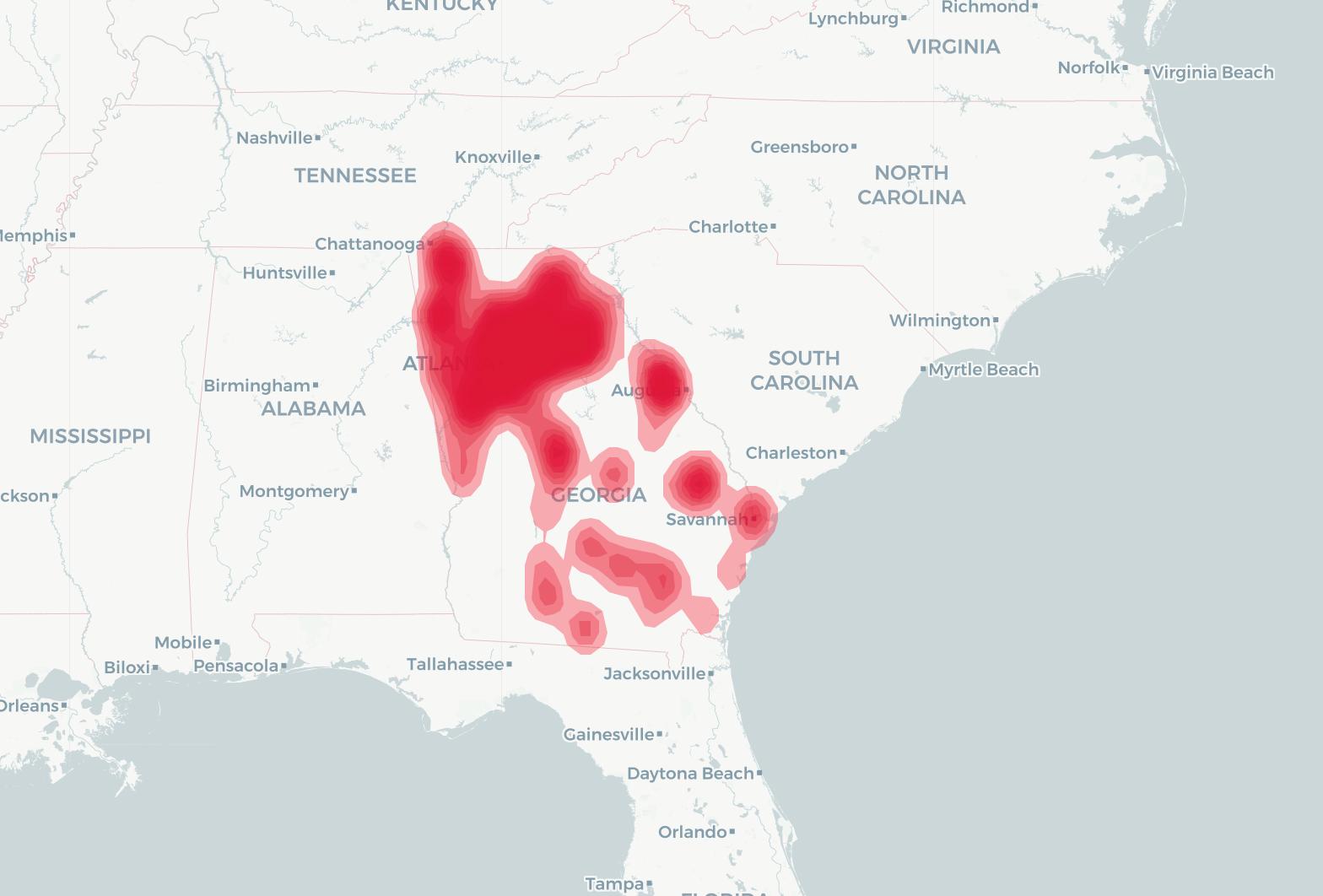
147 White Coats, 8 Recitation Leaders, and 1 Ceremony Later, the Class of 2027 Begins Their Journey
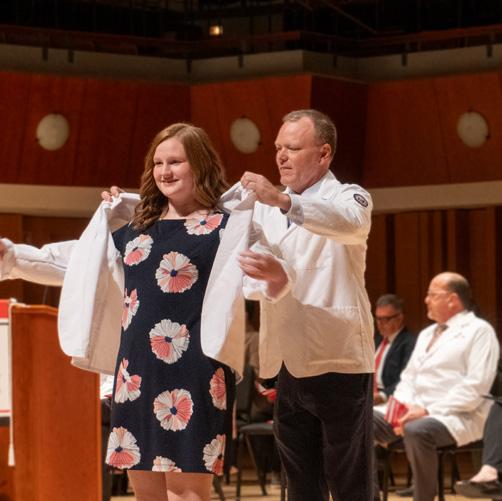
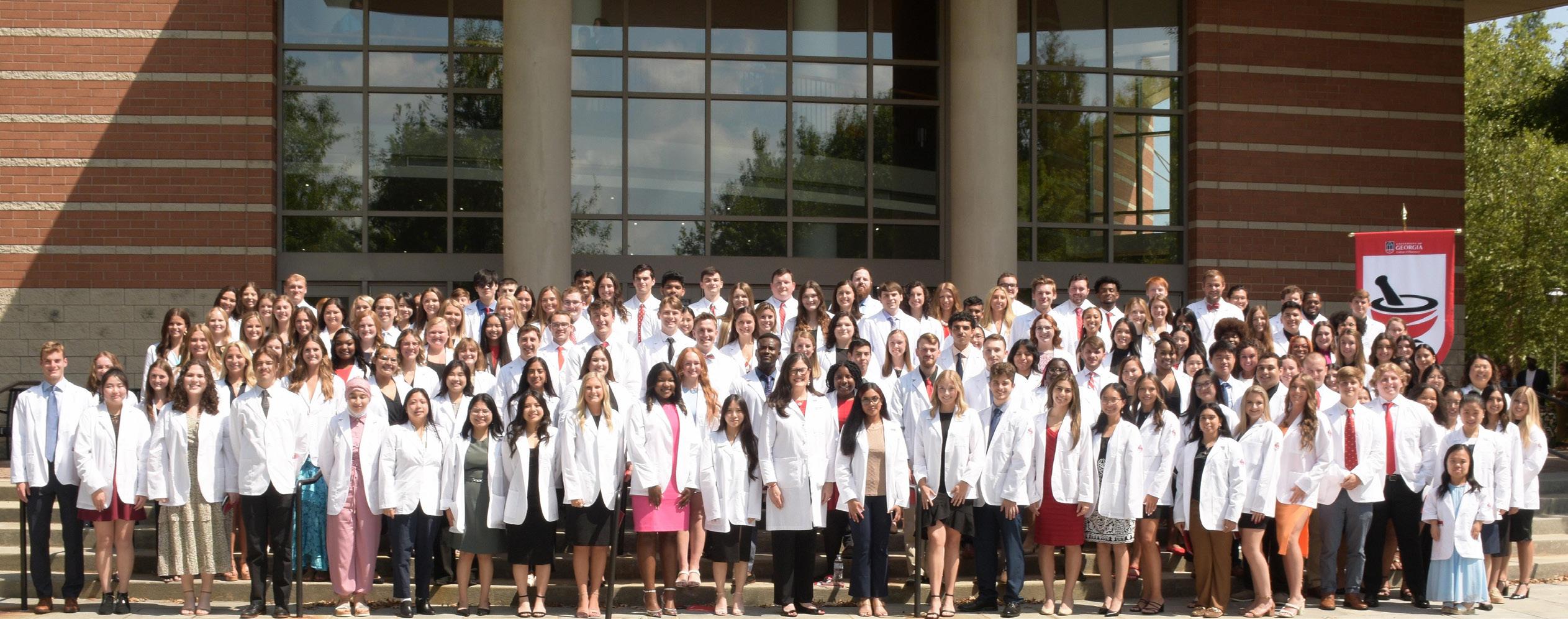
he new Doctor of Pharmacy Class of 2027 knows better than most that this year is going to be a big one— literally. With 147 first-year students, it’s the largest class the college has ever welcomed through the doors of the 120-year-old institution. August 12, the students officially joined the PharmDawg family during the college’s 24th annual White Coat Ceremony, when Dean Kelly Smith spoke about the transformative nature of pharmacy at UGA. “Over the next four years,” she said, “you will evolve, not just as a pharmacist, but as a leader and provider for those you serve.”
Dean Smith offered a warm welcome to keynote speaker Dr. Leslie Jaggers ’85, ’87, Field Medical Director for the Cardiovascular-Metabolic Program for Pfizer in Atlanta. Dr. Jaggers inspired the incoming pharmacy students with her message of wisdom and genuineness, two tenants in the RxDawgs Pledge the honorees recited during the ceremony. Dr. Jaggers advised the new P1s, “Pharmacy continues to be one of the most trusted professions. People may not know you personally, but they will trust in you to do what is best for them. You should always strive to be sincere and honest in your communications.”
A past President of the Georgia Society of Health-System Pharmacists, Dr. Jaggers has been recognized as both an Atlanta Academy of Institutional Pharmacy (AAIP) and Georgia Society of Health-System Pharmacists (GSHP) Pharmacist of the Year. Nationally, she served three terms on the American Society of Health-System Pharmacists Council on Therapeutics, and she achieved fellow status with ASHP in 2018. A devoted preceptor for UGA students and pharmacy residents, Dr. Jaggers also served the college on the Dean’s Advisory Board from 2001 – 2018, observing firsthand the transformative nature of the college’s PharmD program.
It’s that transformative process and leadership acumen of becoming a pharmacist that has P1 students, such as Jacob Rojas, of Goochland, Va., excited for what’s to come. “For years as an undergrad, I was involved in pre-health organizations and always told myself and others that I’d become a healthcare provider one day,” he said. “Now, I’m finally getting to make that dream a reality. I’m finally doing the thing I always wanted.”
Mina Amirkhani, a P1 student from Cumming, Ga., who completed her pre-pharmacy studies at UGA and has previous work experience with Walgreens, is similarly thrilled to begin her professional journey. “I’m most excited to learn drug information that is directly applicable to my future career, and it’s rewarding to know that everything we study from here on out has its roots in helping patients,” she shared.
The opportunity to help patients is what drew incoming student Karsin Bass, Forsyth, Ga., to pharmacy school, and she’s particularly excited about using her career to help children. “I love kids and am currently thinking about a career in pediatrics. But I also want to spend time learning about other fields and seeing all that pharmacy has to offer,” she explained, adding, “It’s exciting to have the freedom to explore for a few more years!” For Paige Miller, who grew up in Charleston, S.C., and graduated from Clemson with a degree in chemistry, exploring a new program in a new city is what the next few years are all about. “I’m most excited about diving into all the student organizations, getting involved, and meeting more people. I’ve worked in non-sterile compounding at an independent pharmacy, and I can’t wait to learn more and try out even more new skills.”
It’s not just Jacob, Mina, Karsin, and Paige who are excited about the start of the new year, though. The fervent enthusiasm they embody is palpable throughout the entire class, and it’s shared by the entire PharmDawg community at large as well. Mr. Mahlon Davidson, Class of 1982 alumnus and newly appointed Interim CEO of the Georgia Pharmacy Association, was one of the speakers at the White Coat Ceremony. Representing his employer, Kroger Pharmacy, the sponsor of the event, Mr. Davidson commented that the future of pharmacy looks brighter because of the promising future PharmDs sitting in front of him. “I look forward to four years from now when you graduate, and I can tell you that pharmacy just got better,” he said. “Today, the International Pharmacy Federation defines more than 100 career pathways a pharmacist can pursue. Tomorrow, as a Doctor of Pharmacy from the University of Georgia, you will be positioned to define even more pathways in the future practice of our profession.”
The next four years will certainly transform the largest PharmD class the college has ever seen into practicing pharmacists, but so too will they transform the profession itself. With 147 unique stories converging onto one common path, the Class of 2027 enters the world of pharmacy, carrying with it a torch of progress that promises to illuminate a brighter future.

